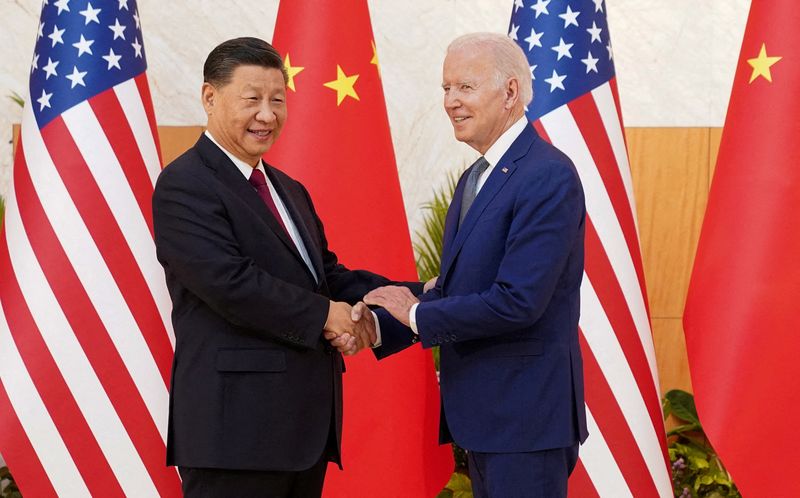Biden addresses Xi ‘dictator’ remark, says US-China relations unharmed
2023.06.22 15:46

© Reuters. FILE PHOTO: U.S. President Joe Biden shakes hands with Chinese President Xi Jinping as they meet on the sidelines of the G20 leaders’ summit in Bali, Indonesia, November 14, 2022. REUTERS/Kevin Lamarque
WASHINGTON (Reuters) – President Joe Biden said on Thursday he did not think his comment referring to Chinese President Xi Jinping as a dictator had undermined or complicated the U.S. relationship with China, while declining to walk back the sentiment.
“The idea of my choosing and avoiding saying what I think is the facts with regard to the relationship with … China is, is just not something I am going to change very much,” Biden told reporters at the White House.
He said he expected to be meeting with Xi in the near term and said Secretary of State Antony Blinken had had a great trip to China recently.
“I don’t think it’s had any real consequence,” Biden said about his comments.
China described Biden’s initial comment as a provocation and lodged complaints with the U.S. government.
At a fundraiser in California earlier this week, Biden said Xi was very embarrassed when a suspected Chinese spy balloon was blown off course over U.S. airspace early this year. Blinken had said on Monday the chapter should be closed.
“The reason why Xi Jinping got very upset in terms of when I shot that balloon down with two box cars full of spy equipment in it was he didn’t know it was there,” Biden said at the fundraiser.
“That’s a great embarrassment for dictators. When they didn’t know what happened. That wasn’t supposed to be going where it was. It was blown off course,” he said.
Biden as president has previously referred to China as “essentially” a dictatorship and “a place for the autocrat, the dictator,” while saying no other world leader wants to be Xi.
Xi presides over a one-party system that many human rights groups, Western leaders and academics call a dictatorship because it lacks an independent judiciary, free media, or universal suffrage for national office.








